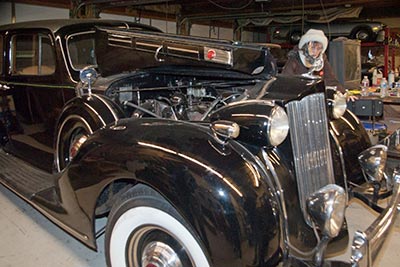COUNT THE COST
Calcule Ud. Los Gastos
By Mary Hunt Webb
Posted Tuesday, January 10, 2012

An emerald cut emphasizes the clarity of a diamond but lacks the fire of a round, brilliant cut stone. [Photo courtesy of Ziva Jewels.]
As my husband and I waited for an elevator, I caught the flash of something unusual on the left hand of the young woman standing next to us. She and her husband were waiting for that same elevator. When the door in front of us opened and we moved forward, her ring caught the light again so that it sparkled.
Looking over at her left hand again, I saw that she had covered it up with her sweater.
Inquisitive person that I am, I had to ask, "Is that a square-cut diamond?"
"It is emerald-cut," she informed me.
It had been so long since I had seen one that I had forgotten that such a cut or shape existed or what its name was.
"It belonged to my grandmother," her smiling husband informed me proudly. "It's been in my family a long time."
By then the elevator door had opened, and his unsmiling wife had moved ahead of him and down the hall while he was still chatting with us. Apparently, the topic made her uncomfortable. I was clearly not the first person to notice the heirloom since diamonds of unusual shapes attract attention. Although the passing down of the family diamond had apparently started out as a charming tradition, it had obviously evolved into an unpleasant spotlight for her.
That is the problem with material benefits. They attract attention so that they must be protected, insured, polished, cleaned, maintained, and sometimes hidden.

Mary Hunt Webb looks at a vintage Packard automobile. [Photographer: Morris Webb, Jr.]
Many people think they want a big house, a luxury car, a yacht, or a special antique, but they do not consider the costs of upkeep, repair, insurance, and security.
Jesus addressed the topic of counting the cost in Luke 14:28: "For which of you, intending to build a tower, does not sit down first and count the cost, whether he has enough to finish it?" (New King James Version) Although Jesus was talking about the cost of building a structure, His words also apply to the cost of maintaining all possessions as well.
As an example, I took several factors into consideration some years ago, when I had the opportunity to inherit a mink wrap: 1) Unlike a fur jacket, it was not large enough to keep me warm in the winter. Therefore, it would not have been useful but merely decorative and, perhaps, prideful. 2) I also thought that it might give others a false estimation of our finances. Truth must show in actions as well as in words. 3) Although I was not responsible for buying it or for encouraging the killing of animals for their fur, that fact would not have been evident to anyone that might have seen me wear it. 4) The additional cost of storing the fur during the summer caused me to decline the opportunity.
In retrospect, the decision was wise because fur storage is no longer available in our state.
Most people think they want luxurious possessions so that when the opportunity to obtain such items arises, they accept without thinking of what that ownership involves. However, it is best to think ahead. Some day, you may also have the opportunity to receive or acquire an item that indicates wealth. Before that happens, I would like you to stop and consider the costs and consequences attached to them.
First, ask yourself if that item would be useful. Does it have a purpose? Would you use it or wear it at least once a week, once a month, or four times a year?
Second, would it cost you to maintain it? Would you have to pay for its storage, insurance, and repair?
Third, would you have to hide it from others in order to protect it?
Fourth, is pride involved in obtaining it? Would you want it merely in order to boast that you have such an item? The exception to this consideration would be an instance in which the possession would provide you with a testimony of God's goodness and grace. It would be all right to accept the item if it would give you the opportunity to tell others about a miracle from God, or about God's provision, or about reconciliation with a loved one. Consider the example of an aunt that might say, "I've not been very nice to you through the years so I want you to accept my fur cape as an apology for the way I have treated you. Will you forgive me?" In such a situation, accepting it and wearing it would open the way for you to tell others about reconciliation and forgiveness. To refuse the item might indicate a refusal to forgive.
Fifth, would the item cause discomfort to others? Would it provoke others to jealousy?
Finally, pray for wisdom about it. Thank the Lord for the opportunity and for the purpose that the item might serve. Then, ask Him to show you what He would have you to do. He will guide you to the right decision.
Bible Verse for the Week
Luke 14:28 "For which of you, intending to build a tower, does not sit down first and count the cost, whether he has enough to finish it?" (New King James Version)
Lucas 14:28 "Porque ¿quién de vosotros, queriendo edificar una torre, no se sienta primero y calcula los gastos, a ver si tiene lo que necesita para acabarla?" (Reina-Valera 1960)

Sit down and think about the consequences of your acquisitions, as this lemur appears to be doing. [Photographer: Henry Bush, via Flickr.com.]

